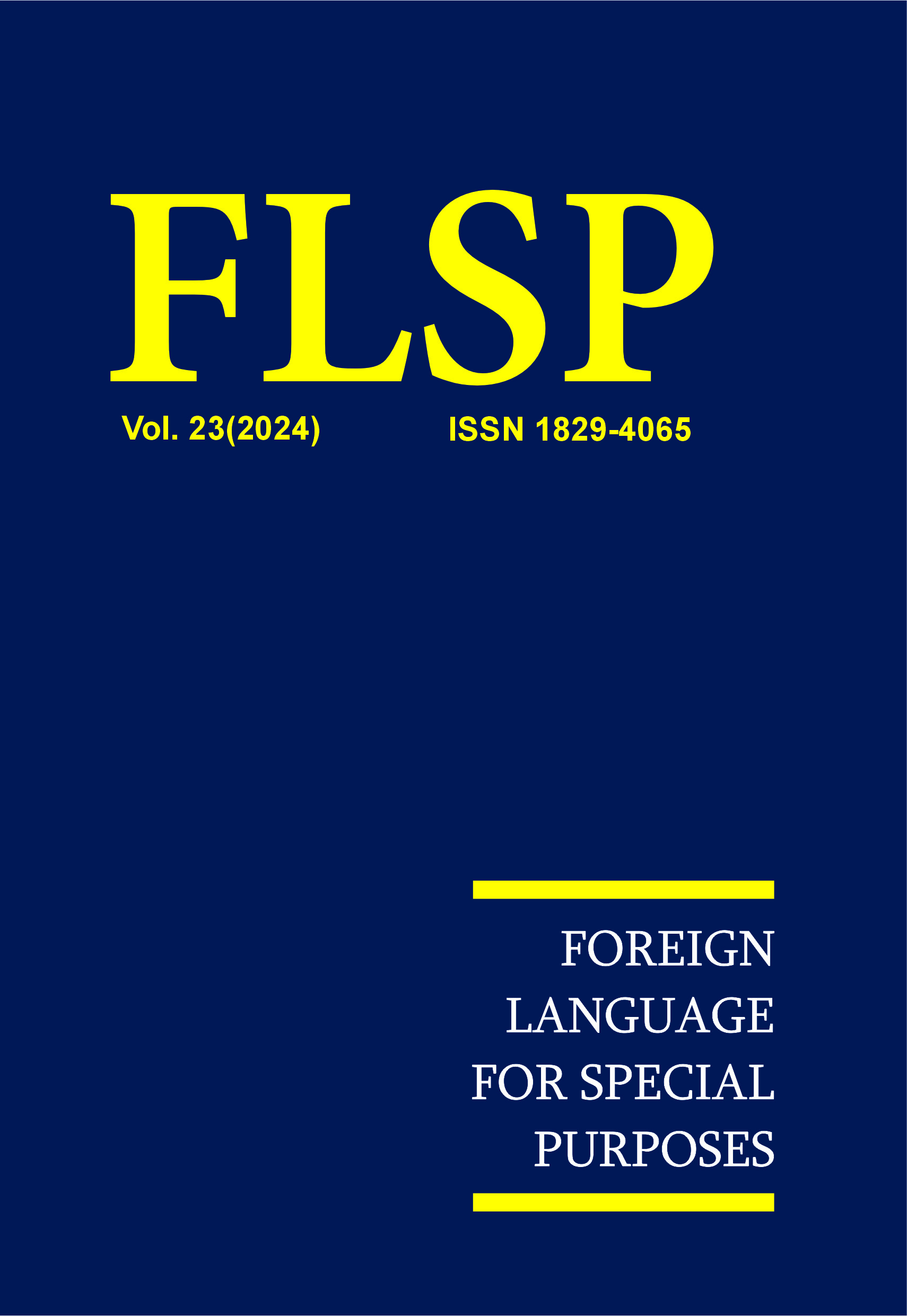THE CONSTRUCTIVIST APPROACH AS THE MOST CRUCIAL PRINCIPLE IN THE DEVELOPMENT OF A CURRICULUM FOR STUDYING ENGLISH FOR SPECIFIC PURPOSES IN A MODERN UNIVERSITY
DOI:
https://doi.org/10.46991/FLSP.2024.23.085Keywords:
constructivism, constructivist approach, communicative competencies, professional communication, student-centered learning, authentic material, critical thinkingAbstract
The article explores the specifics of the constructivist approach in education and discusses the objectives of learning a foreign language. Constructivism is an educational theory and approach to learning that suggests learners actively construct their own knowledge and understanding of the world through their experiences, interactions, and reflections. The key principles of constructivism emphasize the learner's role in the learning process and the importance of meaningful, rich experiences. The constructivist approach emphasizes active learning, critical thinking, and problem-solving. In the context of developing a curriculum for studying English for specific purposes (ESP) in a modern university, the constructivist approach would involve:
contextualized learning: designing the curriculum based on the specific needs and contexts of the learners. For English for specific purposes, this could mean tailoring the content to the professional or academic fields relevant to the students, such as business, science, or technology; interactive learning activities: integrating activities that encourage students to actively engage with the material. This could include group discussions, case studies, real-world projects, and simulations relevant to their specific field; authentic materials: using authentic materials like industry reports, academic journals, or workplace documents to expose students to the language they will encounter in their future professions; student-centered learning: shifting the focus from the teacher as the sole source of knowledge to students taking an active role in their own learning. This might involve projects, research, and presentations related to their specific field; assessment for learning: implementing assessments that measure not only language proficiency but also the application of language skills in real-world situations. This could involve practical tasks, presentations, or portfolios demonstrating their understanding in a professional context. The application of the constructivist approach in ESP aims to make the learning experience more meaningful and relevant to students' future endeavors, fostering a deeper understanding of the language within the specific context in which they will use it.
References
Driscoll, M. P. (2000). Psychology of learning for instruction. 2nd ed. Needham Heights, MA: Allyn & Bacon.
Fosnot, C. (1996). Constructivism: A Psychological theory of learning. C. Fosnot (Ed.) Constructivism: Theory, perspectives, and practice. New York: Teachers College Press, p. 8–33.
Graddol, D. (2006). English Next. Why Global English May Mean the End of English as a Foreign Language. British Council.
Holec, H. (1981). Autonomy and Foreign Language Learning. Oxford: Pergamon.
Honebein, P. (1996). Seven goals for the design of Constructivist learning environments.
Jonassen, D. H. (1994). Toward a Constructivist Design Model. Educational Technology, April, р. 34–37.
Polenova, A. Y. and Postukyan, M. M. (2014). The Issue of Early-Stage Language Professionalism for Bachelors Specialising in Economics. Journal of Economic Regulation, 5(1), p. 128–133.
Polenova A. Y. and Pshegusova G. S. (2015). Foreign Language as a Tool for Professional Mobility Development for Students Specialising in Economics. Journal of Economic Regulation, 6(1), p. 129–136.
Tam, M. (2000). Constructivism, Instructional Design, and Technology: Implications for Transforming Distance Learning. Educational Technology and Society.
Tarnopolsky, O. (2012). Constructivist blended learning approach to teaching English for Specific Purposes. London, Versita, 254 p.
Tarnopolsky O. B. (2016). Diversification of the constructivist approach in teaching English for professional purposes at non-linguistic University. Visnyk of Dnepropetrovsk University of Alfred Nobel. Series : Pedagogics and psychology, no. 2, p. 312–319.
Von Glasersfeld, E. (1995). A constructivist approach to teaching. In L. P. Steffe & J. Gale (Eds.). Constructivism in education (3–15). Hillsdale, New Jersey: Lawrence Erlbaum Associates.
Wang, Z. (2014). Effective teaching in college English classroom under construction theory vision. Foreign Language World, 4.
Zhilin, D. M. (2011). Instructivism and constructivism – dialectical opposite strategies of learning. Pedagogika, no. 5, p. 26–36.
Downloads
Published
Issue
Section
License
Copyright (c) 2024 Lusine Grigoryan

This work is licensed under a Creative Commons Attribution-NonCommercial 4.0 International License.
Creative Commons Attribution-Non-Commercial (CC BY-NC). CC BY-NC allows users to copy and distribute the article, provided this is not done for commercial purposes. The users may adapt – remix, transform, and build upon the material giving appropriate credit, providing a link to the license. The full details of the license are available at https://creativecommons.org/licenses/by-nc/4.0/

